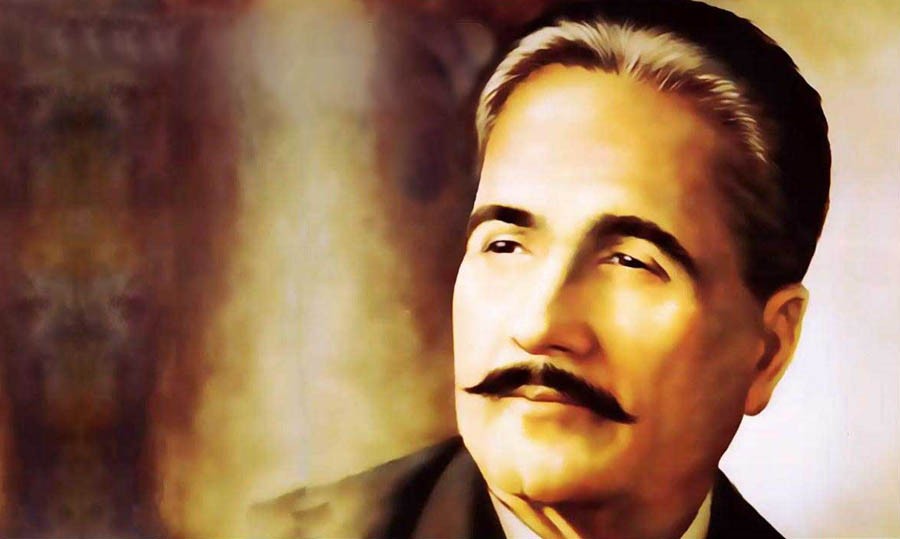
Rereading the intellectual marvel that the Urdu forward of Asrar-e-Khudi is

A very important document that has been out of sight for very long helps us understand the recent cultural history and trends in Pakistan.
It is a little-known fact that the foreword to Iqbal’s Persian work Asrar-e-Khudi comprised 12 pages of a short but comprehensive text in Urdu. However, with the loss of the cultural and academic relation with the Persian language and tradition, this work by Iqbal has never been printed in Pakistan. Additionally, the Iranian editions of Asrar-e-Khudi also do not carry this Urdu foreword to the Asrar anymore.
We shall come to this foreword shortly but for now we shall attempt to understand the reasons behind why we almost lost it.
Let us begin with understanding the loss of the true literary and academic tradition of Urdu that also directly impacted our education system which also directly connects with the loss of these precious words.
This cultural misdirection commenced in the post-colonial Pakistan with our inability to develop an inclusive view of culture and education resulting in a direct conflict between Urdu and Bengali since each of these languages traces their origin to separate sources and has had distinctly separate contemporary persuasions during each epoch. While the difference remained indiscernible in the context of religion and the two nation theory it burst forth violently in many other aspects of national life - most evidently in culture and education.
While both these languages were nearly static in terms of scientific knowledge the choice between the two had little to offer. The focus needed to be centered upon their role in the civic content of education and their role in the development of culture. However, the linguistic tussle partook of this civic objective and pseudo-intellectual dominance of the Urdu speaking migrant elite that dominated decision making in the newfound state did not allow the education system or the cultural paradigm of the state a natural home-grown development.
Shallow Urdu scholarship dominated education and failed to retain any link with the past with definite and indelible impression on cultural trends. There was no education or culture policy to help systematically develop the Pakistani person truly rooted in the traditions of the east with a view to the future taking inspiration from the vibrant western tradition.
Thus there remained no linkage with linguistic and cultural traditions and such precious works such as this "Introduction" to "Asrar" have been permanently hidden away from us.
Coming now to the "Foreword" that must necessarily be called an intellectual marvel. Why a foreword in Urdu when the Asrar is in Persian? Iqbal has rightly made the choice of Urdu for this introduction as Urdu was, at that time, the melting pot of the Persian, Arabic, English and Hindu intellects along with Iqbal’s own training in the Persian, Islamic and continental European philosophical traditions Urdu was the natural choice for a foreword.
The concern to address an audience that took success from all these traditions and yet was growing into a different collective mind is obvious in the entire text. It is noteworthy that Iqbal was throughout his life predisposed to look at Islamic thought and the future of sub-continental Islam through the Persian screen, beginning from his early work the Development of Metaphysics in Persia down till Jupiter heaven in Javed Nama.
However, Iqbal was not successful in presuming that the necessary tradition with Persian shall be maintained. He also did not apprehend the overburdening economic challenges for his envisioned "states" in the western and eastern flanks of the subcontinent -- an economic challenge that was to partake of all other considerations and push Muslim thought, through the education system, toward economic productivity and way away from its cultural roots and its role in building the new sub-continental Muslim personality.
Iqbal attempted to reoriented Persian intellectual origins of sub-continental Islamic thought through the Asrar. In this attempt to reorient Persian thought Iqbal is consciously addressing the issue of the dichotomy of action and thought perceived by him as direct products of varied dispositions stemming from the strands of pre-Islamic Persian thought.
In the preface of the Asrar Iqbal takes up the matter of the "self" as evident by actions and hidden as an existence. The "self" cannot be seen touched etc. directly but only through its creative activity i.e. birth, growth, relation, action, toil and the reflective synthesis of these actions in the form of creative thought in art, science, in other fields of knowledge, in human disposition as seen in kindness, forgiveness, gratitude, cruelty, anxiety, revenge, solace and so on and also in Gnostic experience; all that collectively forms the experiential level of life.
Iqbal categorically demolishes most of the best features of pre Islam Persian aesthetic and poetic tradition and its practical inaction as in the case of Mirza Bedil as much as he directly demolishes the Persian predispositions for the aesthetic and its practical resignation against creativity and the via media this tradition has arrived at in discerning the "creative" in the "inactive" having observed in "Khun-e-Aftab" and "Shrar-e-Sang" the "Effulgence at Sinai".
Iqbal astounds us by his appreciation of the true elements of original Hindu thought of Sri Ram that believes in action to the extent of it being retributive justice and determining factor in reincarnation and here also lies his fear of the Hindu thought to subsume and interpret his own philosophy and Iqbal, therefore, selects Persian as his tool. Iqbal is appreciative of the Western tradition of the "self" that abounds with a call to action for the actualisation of the "self".